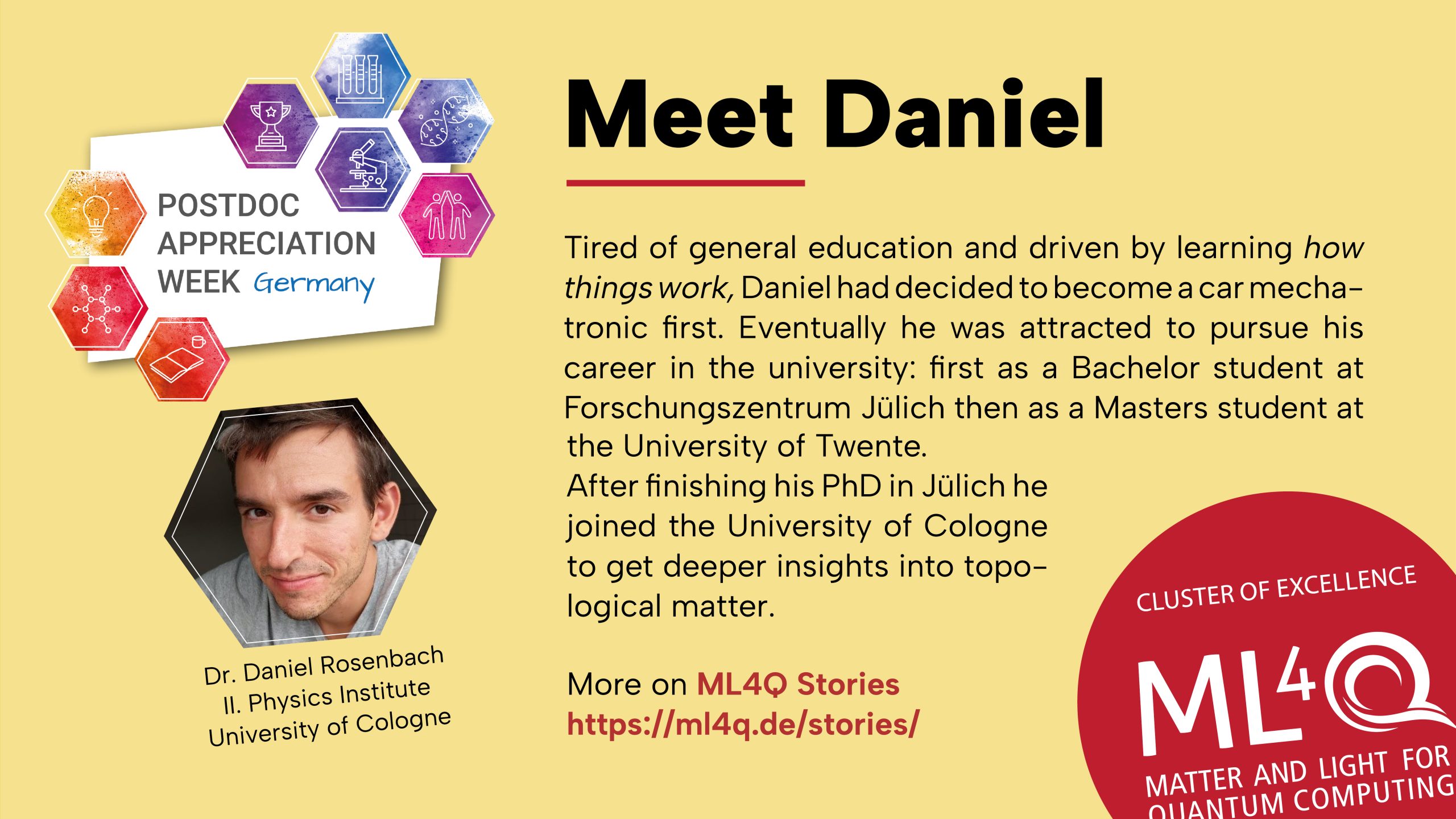It’s Postdoc Appreciation Week!
This week the global scientific community celebrates the Postdoc Appreciation Week (PAW) which was started in 2009 in the US by the National Postdoctoral Association to recognize the significant contributions postdocs and researchers make towards research and academic life in general. The PAW is also widely celebrated in the UK and Ireland and since 2022 also in Germany. The Research and Innovation Services of the Leibniz University of Hannover (LUH) teamed up with the Munich Postdoc Network (particularly Helmholtz Munich and the Max Planck Institute of Biochemistry) to establish this initiative in Germany. This year the PAW Germany coordination team invited researchers and research institutions, postdoc coordinators and research administrators all over Germany to join in creating a special program, events and a social media campaign to honor the incredible work of postdocs!
ML4Q took the chance to feature and recognize the impressive achievements of postdocs who are associated to the cluster. During the week, single postdocs and their profiles will be published on the cluster’s blog ML4Q Stories. Today we invite you to meet Dr. Daniel Rosenbach, postdoc in the research group of Prof. Erwann Bocquillon from the II. Physics Institute of the University of Cologne.
Daniel, how would you describe your career path leading to your current position?
Being tired of general education and being driven by learning ‘how things work’ I had decided to become a car mechatronic first. After vocational training I however was drawn towards university to access deeper knowledge. During my Bachelors research in the workgroup of Prof. Thomas Schäpers inside the Forschungszentrum in Jülich (PGI-9, Nanoelectronics) I had first exposure to semiconductor physics and nanoelectronics/quantum physics. As I was equally interested in both physics and nanofabrication methods I chose to do my Masters in Nanotechnology within the University of Twente in Enschede, The Netherlands. After successfully defending my Masters project on induced superconductivity in topological insulator materials, I continued this line of research during my PhD back in the workgroup of Prof. Thomas Schäpers. Since then I am learning new techniques on the synthesis of topological materials, nanofabrication of devices and different experimental techniques to characterize the devices electronic properties. This would ultimately lead me to join the University of Cologne to join forces with local experts to get deeper insights into topological matter.
What are you currently working on and what other research areas would you like to discover?
Currently, I am working on the experimental investigation of quantum anomalous Hall edge states in vanadium doped (Bi,Sb)Te. We are studying the heat transport through these chiral edge states using direct thermometry by investigating fundamental thermal noise. In the bias state of the device we can measure cross-correlations in between two contacts. In Quantum spin Hall samples these experiments could help to identify Cooper pair splitting from a superconducting electrode into the two spin-polarized edge states of a quantum spin Hall insulator sample.
At the same time I am continuing my research on topological Josephson junctions, by implementing an experimental setup, which allows us to measure the radiated power of a Josephson junction in the bias state. These experiments can help to identify the periodicity of Andreev bound states and might be able to identify contributions to the supercurrent of Majorana bound states.
Name a discovery you wished you were part of!
I wished to have been part of the discovery of superconductivity. The disappearing electrical resistance of solid Mercury must have been puzzling and exciting at the very same time. I would like to have followed through the early year developments of this field.
What is your most enjoyable thing about being a PostDoc in academia?
The exchange on personal and scientific topics with people from all over the world!
And what is the most tedious thing about being a PostDoc in academia?
Deutsche Bahn
What comes next?
Dinner! And tomorrow we will continue to unravel more interesting physics.
